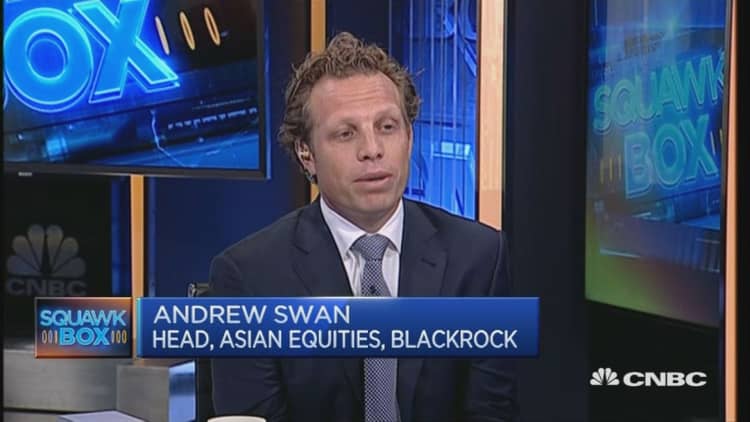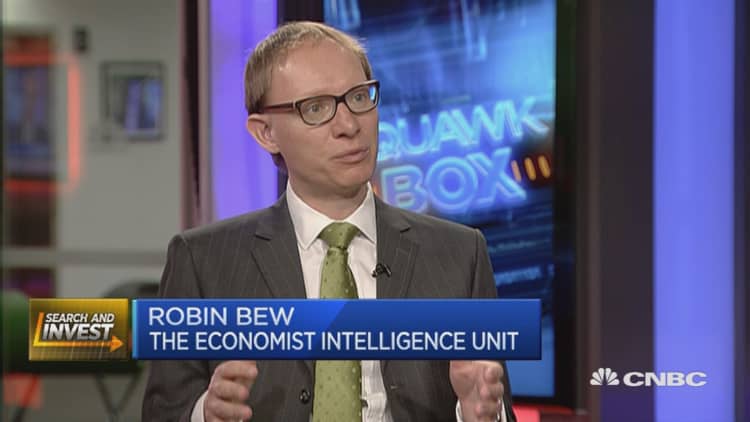Global uncertainties aren't very important to the economy and monetary policy has been "vastly overrated," said Ravi Menon, managing director at Singapore's central bank.
Other factors were likely to have a larger impact on the global economy than whether the U.S. Federal Reserve raises interest rates by 25 basis points at its next policy meeting on September 20-21, Menon said at the Milken Institute's Asia Summit in Singapore on Thursday.
To be sure, Singapore's central bank, the Monetary Authority of Singapore (MAS) doesn't guide markets in quite the same way as the world's larger central banks. Because of the city-state's small size and open economy, trying to set interest rates would likely be largely ineffective.
Instead, the MAS, which has official policy-setting meetings just twice a year, sets its monetary policy by adjusting an undisclosed trading band for the currency based on a basket of currencies weighted to reflect trade levels with the city-state. The MAS may intervene if the currency moves outside its band.

Rather than monetary policy, Menon pointed squarely at other factors as more important.
Weak investments have negatively impacted the world economy, particularly in the U.S., Menon said.
In the U.S.,"the housing market has recovered, the labor market has recovered, the unemployment rate is close to the natural rate. Private consumption is good, chugging along. Consumer sentiment is strong," he said.
"The only part of the engine that's not working, and that's a key part, is private investment. Corporate America, which has these huge cash piles, is not investing."
That matters more for the global economy and Asia than U.S.gross domestic product (GDP) growth, he said.
"The entire global value chain of manufacturing is plugged into that: Shipping trade, production."
American companies, despite sitting on cash piles, have not been investing and that matters more for Asia than U.S. gross domestic product (GDP) growth, he said.
In the second quarter of 2016, U.S. companies had cash and marketable securities valued at 32 percent of GDP sitting on their balance sheets, up from 15 percent in the first quarter of 2006, according to a slide showed by Michael Milken at the conference.
Menon had several theories about why investment was so sluggish. For one, he cited less confidence in future growth prospects, which had become a vicious circle as failure to invest was depressing future growth prospects.

He also noted that companies' technology spending had changed substantially over the years. Rather than investing in buying servers or mainframes, many companies were using services, such as cloud and other more agile technologies, he noted.
That may have a knock-on effect on the slowdown in merchandise trade as well as companies' technology investments become more knowledge- and software-based, he said.
Menon's concerns were also echoed by Milken, who noted that in the wake of the global financial crisis, the people making investment decisions had turned more conservative, not unlike a similar attitude in the wake of the Great Depression of the 1930s.
Milken said it was important to move the decisions about allocating capital toward companies that see opportunities.
Milken also noted that the percentage of the world's economy moving digitally has increased every year, meaning that less of the world's economic output was moving on ships and trucks.


